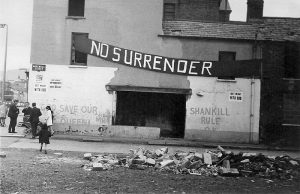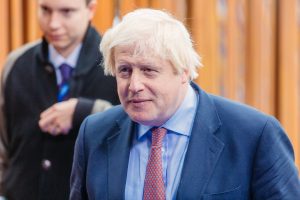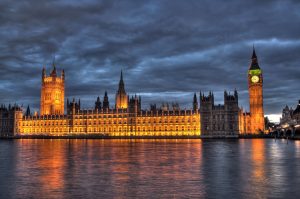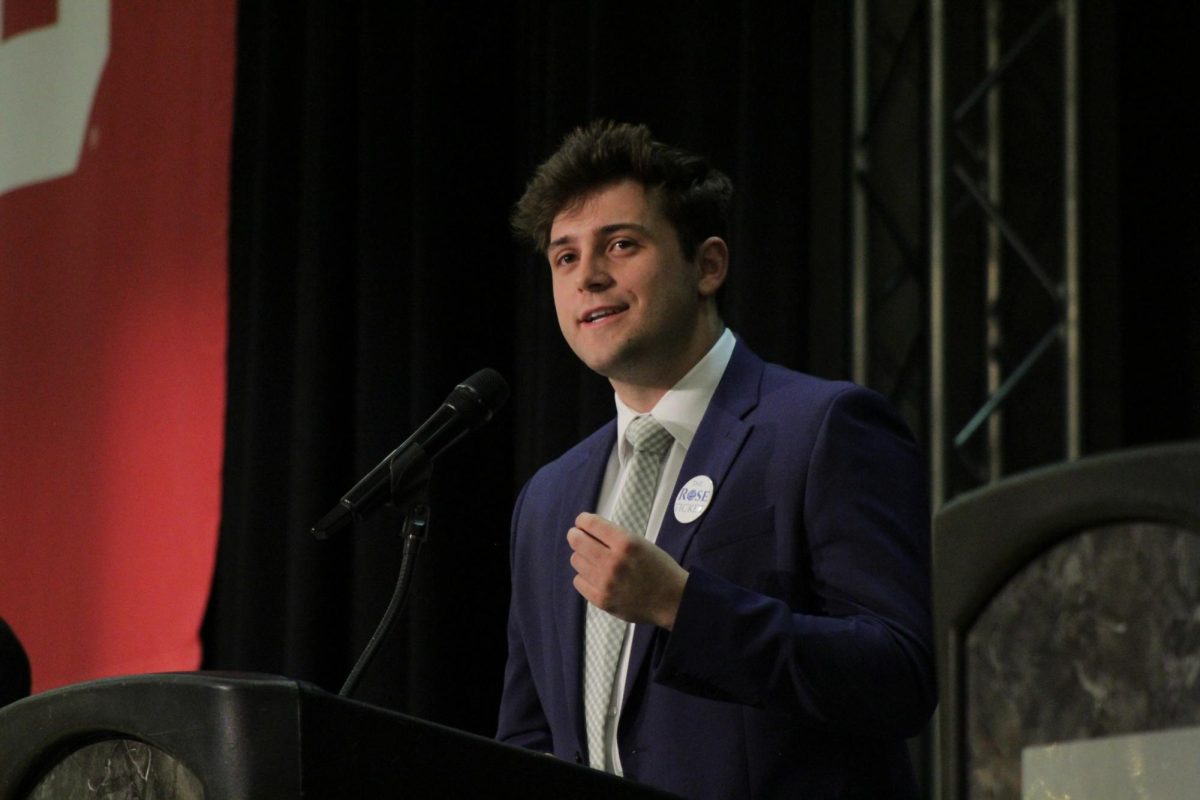Swanson: Johnson Has Undermined Democracy Under the Guise of Upholding It
September 16, 2019
Vigilance and reading time is necessary just to keep up with all of the goings on that contribute to the daily calamity of American politics. It takes an even more committed enthusiast to keep track of two political crises in two separate nations. I personally enjoy listening to hours of refined English politicians yelling and throwing witty remarks at each other, but most people won’t follow politics outside their own country. While it’s hard to blame a reader for not being fully briefed on the Brexit process, the direction it’s taken since the induction of Boris Johnson as Prime Minister should be incredibly troubling for everyone. The harm Johnson has done to the fabric of parliamentary democracy is worthy of global scrutiny.
Preparing for Brexit

In the summer of 2016, citizens of the United Kingdom voted to rescind the country’s membership in the European Union. Those who voted to leave did so in the interest of reclaiming British sovereignty over immigration and trade separate from EU guidelines and regulations. Others voted to remain in order to maintain the benefits of EU membership (such not needing a passport to travel to other member states) and having a seat at the table directing such a large world economy. Since then, Parliament and the EU have not been able to reach a trade deal, and this failure led former Prime Minister Teresa May to resign in May 2019, paving the way for Johnson to take power.
At the time, Johnson was the outgoing mayor of London and a major figurehead of the Leave campaign. Now that he is the Prime Minister, he has made it clear — The United Kingdom will exit the European Union on Oct. 31, 2019, deal or no deal. The ramifications of a no-deal Brexit could be cataclysmic for the average citizen and the health of the British economy. The U.K. imports many necessities from European countries, aided by its status as an EU member state. The government’s Operation Yellowhammer warned that a no-deal Brexit could lead to civil unrest, slowed entry of travelers and shortages in food, fuel and medicine.
Possibly the most pressing question of a no-deal Brexit is how it will affect the Good Friday Agreement. The Good Friday Agreement was signed in 1998 to end The Troubles, a bloody conflict between nationalist Catholic Irishmen who wished to see their island united under one flag and unionist Protestant Irishmen who wished for Northern Ireland to remain in the U.K. The Accords have been incredibly effective in preserving peace in Ireland, helped by the shared EU status of the U.K. and Ireland that allows free travel between Ireland and Northern Ireland without burdensome checkpoints on a hard border. A no-deal Brexit has no means of sustaining this agreement, and hard borders will most likely go back into effect. The consequences could very well be lethal.
However, Johnson and the government made the political promise that the U.K. will exit the EU, and now he’s determined to do so, whatever it takes. Now, the chance for the U.K. and the EU to reach a deal before the Oct. 31 deadline grows slimmer and slimmer every day.
Johnson’s Political Games

There have been lots of comparisons between Johnson and President Trump. While they do share some similarities in appearance and play similar roles as right-wing figures who built their power fighting immigration, to compare their conduct would, frankly, be an insult to Johnson’s experience and political prowess. Trump makes it clear through speech and action that he doesn’t understand the Constitution and processes of the U.S. government, but Johnson knows how to play the political game.
Johnson has controlled a powerful narrative. He claims that the British public is justifiably upset that their mandate has not been carried through, three years after voting to leave the EU in 2016. Enter Boris — the hero who will see it through by any means necessary. However, Parliament stands in his way, preventing him from achieving his goal as swiftly as he’d like to. Johnson’s Conservative party, the Tories, has been losing members since Brexit. Despite forming new coalitions in an effort to keep power, moderate Tory MPs still opposed Johnson’s hardline exit strategy. Earlier this month, Johnson handled it by expelling 21 of them from their own party.
Johnson called for a general election, seeing if the public might vote in a majority of friendlier MPs. (His bid was rejected.) He also asked the Queen to effectively suspend parliament until October 14, though the Supreme Court ruled his actions were unlawful. These tactical political plays are Johnson’s attempt to run out the clock, preventing any more delay of a no-deal Brexit. If the election happens, Brexit will be postponed, hopefully allowing election results to provide the mandate for or against a no-deal Brexit.
How Johnson is Undermining Democracy

This all plays into Johnson’s narrative of maintaining democracy. He made a show of placing it in the hands of the public, innocently asking to see how the scales balanced in the end. But general elections take several weeks and the U.K. only has six weeks left to broker a deal with the EU. Even if results were in before the Brexit deadline, it could result in another hung parliament — hardly different from the scenario they already have. Calling for a general election is not a serious or viable mean of finding some consensus about a deal or no-deal with Brexit— it is a mean to quell the storm the opposition has been creating over the looming fate of no-deal. Johnson simply wants to delay further debate on the subject.
This is further evidenced by his proroguing Parliament. This motion prevents Parliament from debating or voting on government matters for five of the remaining six weeks left to negotiate Brexit. Originally, Parliament was not scheduled to reconvene until Oct. 14, three days before Johnson leaves for Brussels to negotiate with the EU one last time. Now, Parliament will resume on Sept. 25 in response to the Supreme Court decision. There is hardly enough time for the opposition to hold oversight. They will struggle openly debate the government’s approach or preparation for the talks, or their plans regarding a no-deal Brexit in Westminster where action can be taken.
Johnson is not afraid to go in front of cameras to justify his actions, claiming he is doing so for the sake of democracy while simultaneously suspending the democratically elected legislative body of the people. Johnson is willing to violate valuable norms to see his political promise to its end with as little resistance as he can hope to muster.
The Prime Minister has the power to suspend and assemble Parliament when he likes, but the way in which he is doing so now should raise the eyebrows of ardent believers of democracy like Johnson claims to be. Johnson’s conservative party is turning its back to the duty it has to work with the opposition and lead a functioning government. Its duty as the governing party is to protect the interests of its citizens and the country. It is instead more concerned with carrying out their ongoing political game.
In the U.S., citizens felt disappointment when their government was shut down over a political promise. The British people won’t feel the consequences of this until after their government returns to work.












